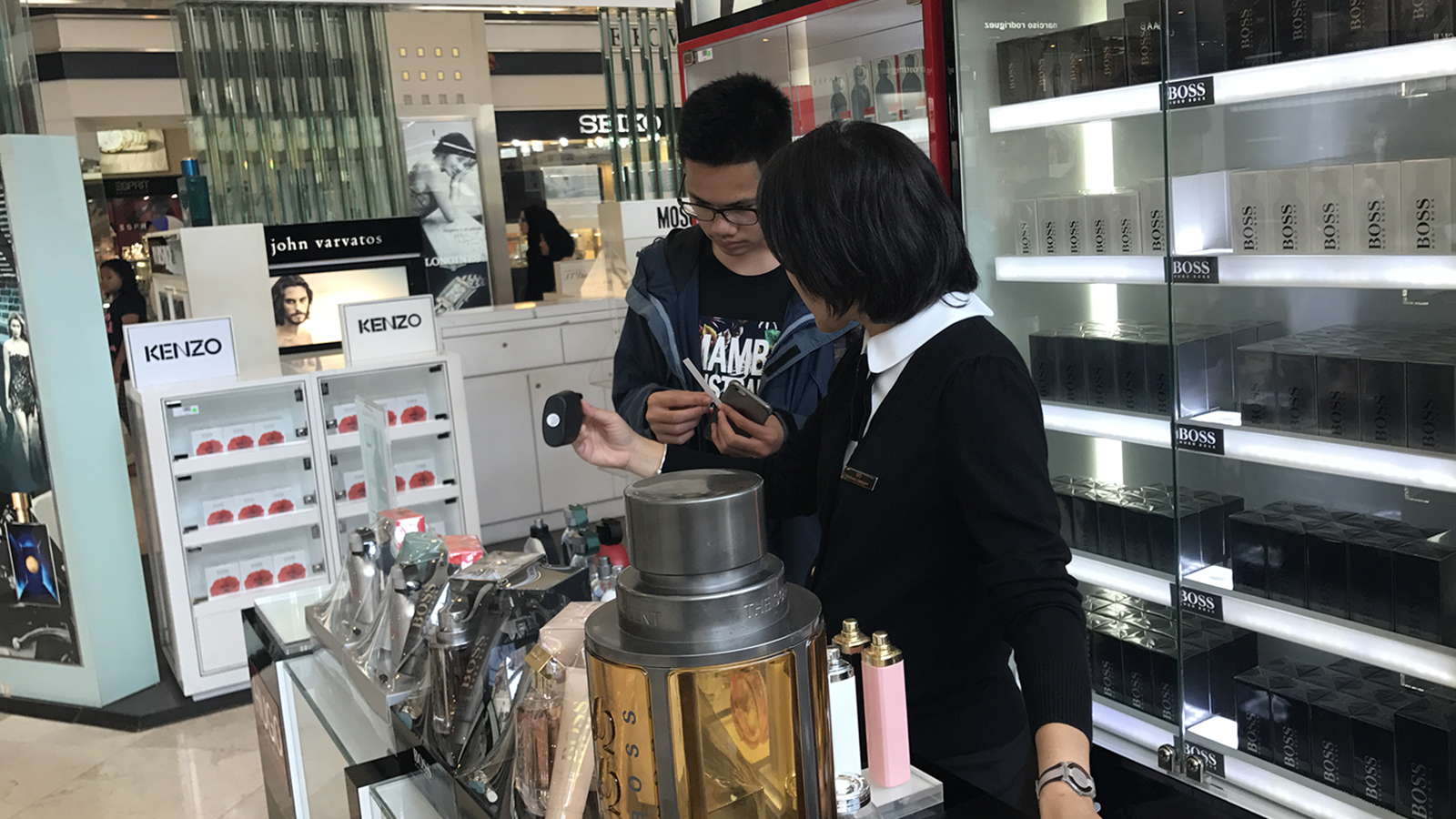
How can an Outsourced Agency Demonstrate Value in a Competitive Marketplace ?
Providing a service to clients that manifestly increases sales will always be the cornerstone of a strong value proposition. Pricing this significant service at a rate that represents fair value for this impact on a client’s business is an increasingly difficult task in today’s competitive marketplace. But I strongly believe it is more important than ever to focus on the value of the offering and clearly articulate what difference this can make to the client's business. Admittedly, and realistically, price is not irrelevant. Mickey Drexler, ex-CEO of J. Crew, says “The real price of goods is always the selling price. The best price is to sell it for what it’s worth.”
So, how does an outsourced agency demonstrate worth, maintain a keen pricing structure, and avoid a negotiation where the only outcome is a spiraling descent to the bargain basement of both price and value, a process I describe as ‘the race to the bottom’?
Before even venturing to introduce a pricing model, an agency must start each relationship by making strenuous efforts to understand the client needs and then clearly demonstrate the value of their agency’s creativity and wisdom.
Understand what problem the client needs to have solved? Be clear about what insight the agency can bring to the table? Ask searching questions and encourage the client to really define what success means to them. All of this helps to establish a level of trust and to forge common alignment.
It also embraces transparency and a deeper understanding on both sides. Interestingly for the potential client, a closer evaluation of their needs helps the client to evaluate potential providers on their approach and capability rather than solely on price.
What about the spectre of procurement? For many sales or new business teams, the mere mention of procurement evokes a rolling of the eyes or worse!
In my multifaceted role as a Global Chief Operating Officer, Asia President, and Senior Accounting Officer for the CPM Group of companies, I’ve endured many negotiations with zealous procurement teams, watching each element of our service being systematically broken down and assigned a price instead of a value. It’s a very straightforward, almost mechanical, process to place a price on inputs with no bearing on the benefits.
However, the procurement team/individual that can relate those inputs to the value created in the outputs, embraces the real added value the organisation seeks. The procurement professional can help demystify the challenges of internal budget structures versus real output based pricing, and work collectively with marketing and their agency to build a cost model that rewards good work and demonstrates value.
This can be the huge benefit of procurement done well. Yes, they often force agencies to examine their costs and present them in a more transparent manner, but this can only benefit any business longer term. Understanding the price of service delivery is essential for agencies to then realise profit whilst ensuring clients get value.
PepsiCo has recently eliminated procurement from marketing negotiations, but 53% of companies still involve procurement and the onus is on sales teams to embrace this and positively influence the decision-making process, defending their value proposition by clearly demonstrating its impact whilst working in an open and transparent manner, building trust with its procurement client as well as the marketing teams.
If business is negotiated on the correct footing, with the service framed as an investment not an expense, then both the client and the outsourced agency can harness the power of synergy and create a mutually successful outcome, based, not simply on cost, but on value linked to insight and a robust ROI.
Winning business that has a miserably low margin while voraciously consuming precious resources, leads to an inevitable and sometimes bitter parting of the ways, which can have a big impact on the agency’s business overall. It takes courage to hold your nerve around the negotiating table and look for new ways to add value, but it is imperative that your service is not viewed as a mere commodity. I’m afraid to say that all too often agencies have nobody but themselves to blame as they agree to commercial arrangements that are best described as suicidal. Who can blame client procurement, they are merely doing what we all try to do, which is secure the best product at the lowest price. I’d like to purchase a luxury car for the same price as a mid- range sedan, wouldn’t you? The fundamental issue here is procurement will keep asking for more concessions until the agency says no! The agency must find ways to say yes outside of simply cutting price and leverage the value-added aspects of the work the agency can and does do for the client.
The world is our marketplace and communication is getting faster. Whole industries, including retail, have undergone tremendous disruption. To be competitive, agencies must be agile, able to simplify process and embrace diversity. Rigidity is a thing of the past. Linear thinking and acting is hopelessly outdated. We must all work on a broader commercial approach. Business is global and it has never been easier to communicate and harness global learnings.
I recently attended a regional conference in Asia where teams from six countries pitted their collective problem-solving and creative skills to put forward several workable project plans designed to roll out across the region for a major client. The client was in the room and was electrified by the sheer energy and practical application achieved in a breathtakingly short amount of time. This was a clear demonstration of how enhanced service can be collectively achieved by harnessing the synergy of truly diverse teams.
Agencies must foster and encourage mental agility and flexibility amongst their people as they are the drivers of value. Business can’t be exclusively conducted from the isolation of a desk. Client service teams should actively network and absorb thoughts and insights from a diversity of sources. We all must keep up with current trends in the market and strive to be thought leaders, the respected “go-to” person in our field. This is especially important if we are going to master and exploit change and not be left an irrelevant colossus, too big and bloated to adapt in the face of fundamental upheaval.
In an increasingly digital world, the distance between clients and the field has never been closer. Agencies must manage their reputations, earn respect and nurture authenticity in all areas of our business. Actions and character must be in-sync and agencies must align what they do with what they
say. Relationship building has always been central to a successful campaign and now it is critical to get closer to clients. This means actively involving field teams.
Communication, like a fountain, must flow upwards as well as downwards. Agencies must inspire everyone to take responsibility and be heard, not mumble in the corner if things are not right. In a world where word of mouth is king, agencies should empower all employees to be advocates, the field teams are brand evangelists and a powerful manifestation of value.
Agencies destined to survive and thrive will be rooted in strong foundations and adaptable in the face of change. Always listening and globally aware, not complacently locked in silos. Not intransigent in the face of a problem and not taking the easy route of pointing fingers and blaming others. Instead, they must strive to think creatively about how to clear roadblocks as a team, with each member taking responsibility. It's too easy to say no constantly; find ways to say yes that make commercial sense, add value and bring creativity to the solution required.
The pressure of today’s marketplace will always make it attractive for clients to go for a cheaper option. But business is rarely won on price alone. Competitors can undercut, but it is up to each agency to demonstrate they can offer an intelligent, consistent depth of service, delivered by a committed, energetic and engaged field team. Cutting corners and spiraling ever downwards leads to a race to the bottom and is ultimately unsustainable. Instead, focus should be concentrated on insight and people as they adapt, thrive and make evangelists of clients. There will be no better way to demonstrate value and as a positive by product, earn a decent margin.
Contact us to find out how we can help drive sales for your business


 2 minute read
2 minute read


